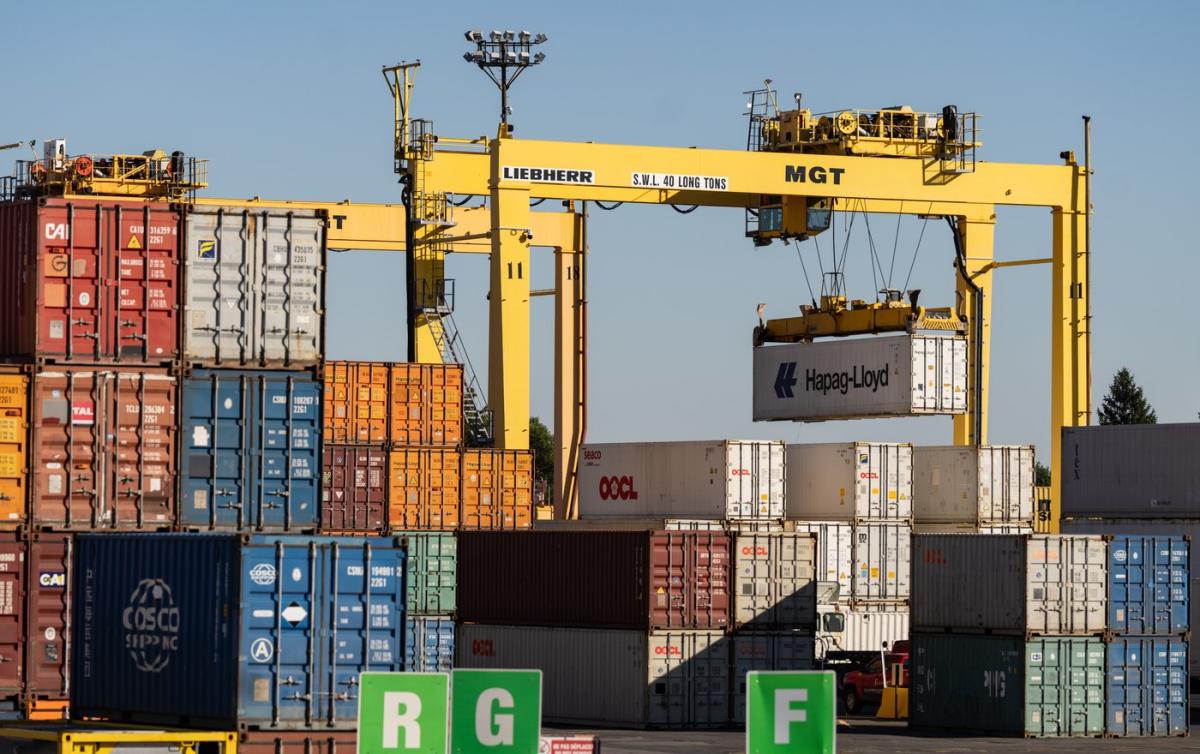


MONTREAL — Dockworkers at the Port of Montreal plan to halt all overtime work starting later this week in a pressure tactic aimed at management as contract talks grind on.
The union representing nearly 1,200 longshore workers at the port said Monday it has filed notice that the “overtime strike” will kick off at 7 a.m. EDT on Thursday and continue indefinitely.
“We’re ready to negotiate intensively, but since the employer is dragging its feet, we’re putting a little pressure on it to devote its energies to finding a solution,” said Michel Murray, a spokesman for the union local affiliated with the Canadian Union of Public Employees.
He said scheduling remains a key stumbling block in the bargaining sessions, which resumed on Friday under the watch of two federal mediators.
The discussions restarted after a three-day strike last week at two terminals that handle 41 per cent of container traffic at the country’s second-largest port.
The dockworkers have been without a contract since Dec. 31.
The Maritime Employers Association has said the drawn-out negotiations have caused uncertainty among shippers, prompting some to reroute their freight and that it puts Canada’s reputation as a reliable trading partner at risk.
The group, which represents shipping companies and terminal operators, struck back against the union on Monday, saying the freeze on overtime work will have a big impact on operations — and on wages.
Employees assigned to shifts with incomplete crews “will not be paid,” the association said in a statement.
“This decision is necessary in view of the fact that incomplete shifts will imminently slow down or even halt operations at the port, with consequences for the public.”
Management has asked the union to withdraw its strike notice and “follow the procedure” laid out by mediators in order to reach a deal quickly.
While many shippers had built up inventory in advance of a potential work stoppage in Montreal, the effects of a backlog on the waterfront can still ripple for weeks.
“Any time you see a delay in shipments, it’s a concern to industry and to food waste,” said Ron Lemaire, president of the Canadian Produce Marketing Association.
The impact is far less pronounced when only overtime shifts are scrapped. But Lemaire said the job action comes as one more disruption in a series of supply chain headaches over the past 15 months, from last year’s 13-day dockworkers strike in B.C. to last week’s three-day shutdown at 36 U.S. ports.
“You take weather incidents, you take labour actions, all these things that come at us from growers to wholesalers and retail services, it’s a continual struggle,” he said.
This report by The Canadian Press was first published Oct. 7, 2024.
Christopher Reynolds, The Canadian Press